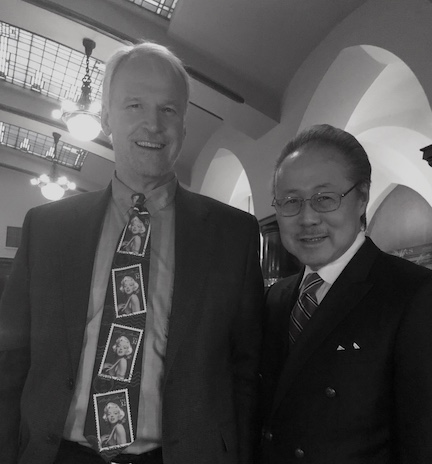
The idea of learning leadership begins the first time you do what you are told to do.
Usually it starts with a mom or a dad. If not them, maybe a teacher or coach.
If it happens to be some jackass in the neighborhood a few years older, then it’s going to be a defective brand of learning leadership.
I had a mom and a dad and teachers and coaches, but the first time I understood the role of leadership came with a neighbor kid a few years older than the rest of us.
He said he knew how to shock one of the other kids in the group by touching the handle of his refrigerator and oven at the same time.
I believed him, or a least wasn’t going to find out if it was true. One summer I got tested on a farm with animals held in by an electric wire fence.
How does the farm test work on a town kid? Pee on the fence and find out. So I did, and the results were shocking. After that I stayed away from promised electrical shock.
But that wasn’t the case for the older kid. He grabbed the handle of the fridge and stove and gave a howl that didn’t sound fake. No one else took up the challenge.
The kid who got shocked was a leader of kids, but the older kid got him to do what he told him to do.
Leadership In The Woods
As children in a small town, my family lived on a dirt road. We were the last house before the woods. We had woods across the street, too. And a big sand dune.
The older kid said we ought to build a tree fort. We built a tree fort.
When kids down the street tore our tree fort down because it was better than theirs, the older kid said we needed to tear their tree fort down.
The only problem was we couldn’t get to it. Those kids weren’t as tightly supervised and had time to find things to break. And their fort was on their property.
The older kid showed true leadership skills when he said we needed to have a rock fight. It had to be such a bad rock fight that the kids would abandon their tree fort and hide in their house.
Then we could tear their tree fort down.
For the sake of fairness, he told the other kids we were coming for them. He told us to bring rocks, not sand stone that crumbled. To prove his greatness, he broke a mirror in his house and gave us all pieces so we could blind them, then throw rocks.
It worked. The only problem happened when one of them tried sneaking up on us and the smallest kid in our group heaved a big stone into the bushes. Their sneaker took it on the back of his head.
Either their wounded guy or our rock barrage did the trick. They abandoned their fort and we tore it down.
Age Of Learning Leadership

I tell this story to show the fallacy of age in leadership. Old people, due to experience, are automatically leaders. At least that’s the idea.
When older people go off the rails, bigger problems rise up.
Because I’ve had a mom and dad, teachers and coaches, Drill Sergeants and Captains, wife and kids, I’ve been exposed to learning leadership of all kinds. Maybe you have too.
The people I never understood while I was around them were the yellers, the people who screamed their orders. In the Army there was an excuse, it being the Army.
The screaming coach had a similar excuse. They did it ‘for the kids.’
What excuse is there for someone who uses the expression of learned leadership without really leading, but to dupe others?

If there’s a room full of working people, some in suits, others in uniform, and one person is using the expression of leadership to intimidate, berate, and denigrate, then they’re showing bad form for most people.
But who enjoys an atmosphere of hostility most? People who have endured it from others, whether mom, dad, teacher, or coach. Or others.
Some folks are conditioned to respond to facial tics, sneers, angry expressions practiced in mirrors and on camera, by bowing down instead of standing up.

When those people decide they’ve been looking down long enough, something else happens. It starts with remorse, then crying, then asking for forgiveness, and begging for another chance.
Consider where Mr. Trump’s ‘base’ lives, and why he spends time in places like North Carolina and Florida and points south. To them he is a ray of sunshine, a reason for hope.
I saw a quote along these lines: “Trump isn’t stupid, but he knows what stupid people like to hear.”
I disagree with the IQ assessment. Instead, Mr. Trump is speaking to a population indoctrinated into following loud talk, threats, and broken promises.
But only for so long . . .


